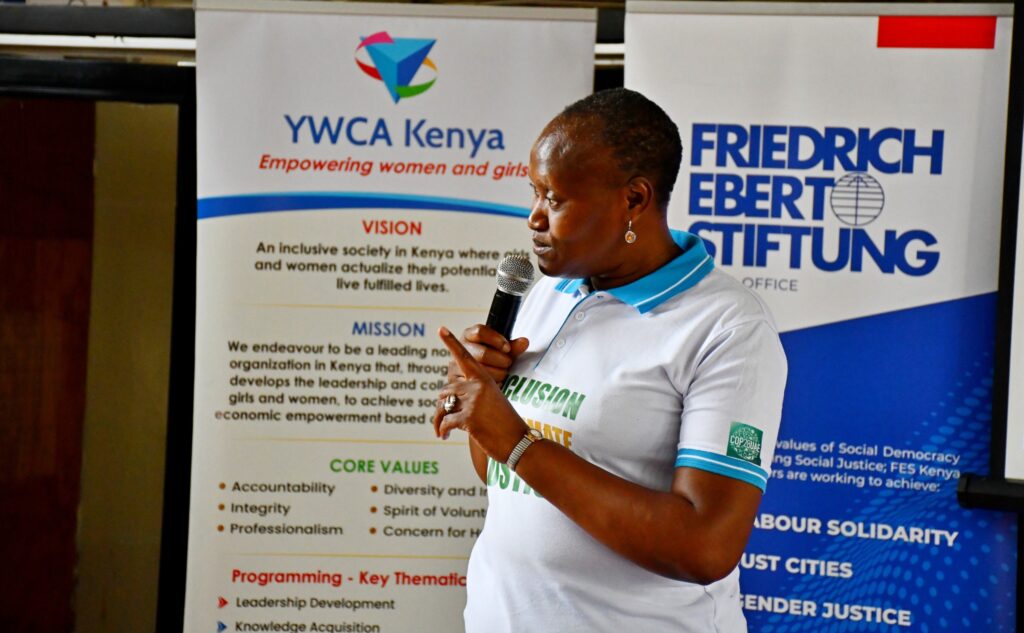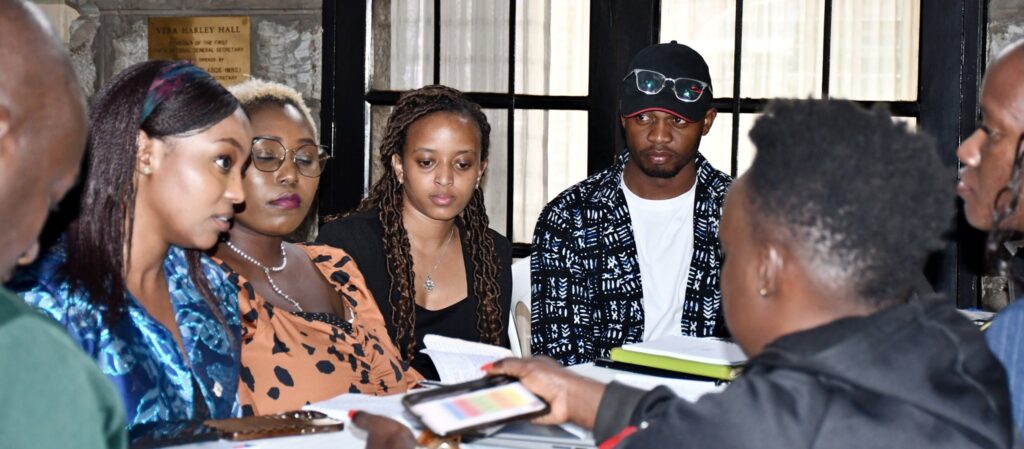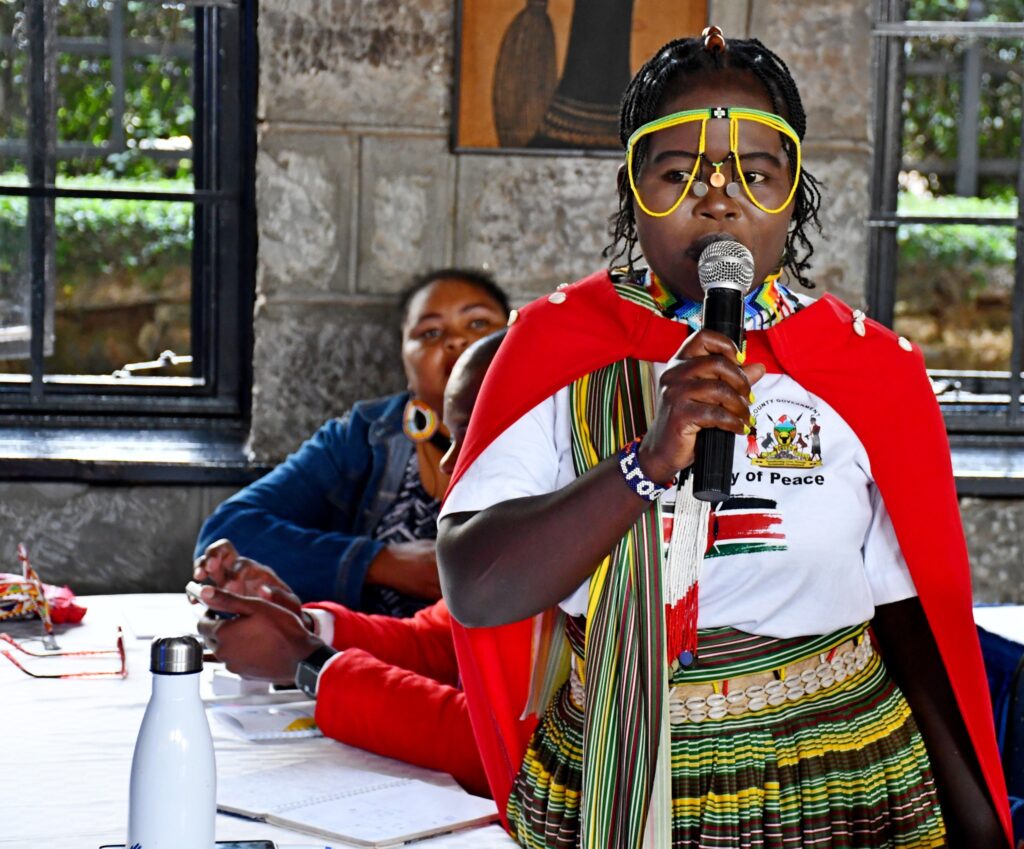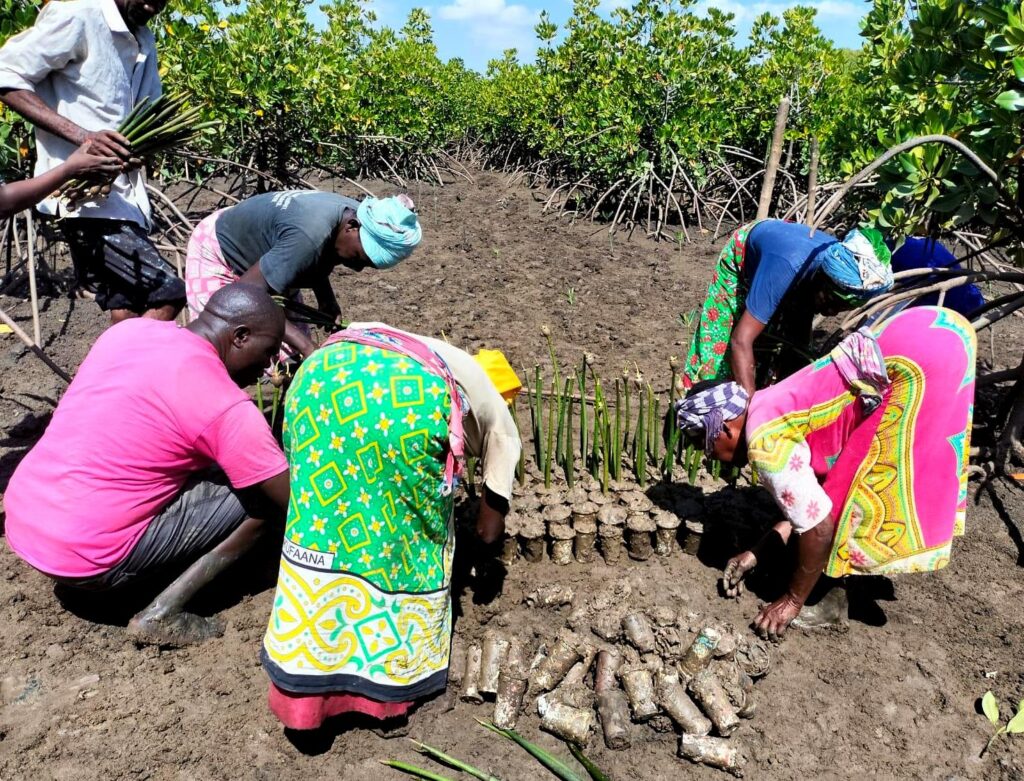In a strategic move to consolidate voices and advocate for climate priorities, Kenyan youth, women, Indigenous Peoples, and marginalized communities convened at the Young Women’s Christian Association (YWCA) headquarters in Nairobi.
Supported by the YWCA and Friedrich Ebert Stiftung, the workshop aimed to reflect on the outcomes of COP28 and the SB60 session while strategizing for COP29, set to take place in Baku, Azerbaijan, from November 11 to 22, 2024.

The workshop sought to prepare participants for the government’s development of a position paper on climate action, ensuring their needs and perspectives are included.
Discussions focused on unpacking COP28’s outcomes and their implications for vulnerable groups, particularly in light of the upcoming New Collective Quantified Goal (NCQG) on climate finance, set for conclusion at COP29.
Participants also reviewed gender-related decisions anticipated for COP29, emphasizing the need for better gender representation and responsive climate finance mechanisms.
Key Climate Finance Demands

Participants raised concerns regarding climate finance, especially as developing nations face rising costs for mitigation and adaptation.
They proposed that Kenya champion an annual finance goal of no less than USD 1 trillion, supported by measurable sub-goals for mitigation, adaptation, and loss and damage.
They urged that finance provisions align with Article 9 of the Paris Agreement, mandating developed countries to contribute.
Moreover, they advocated for public, grant-based finance focused on vulnerable groups, including women, youth, local communities, and people living with disabilities.
The need for transparency and accountability was emphasized, with participants recommending context-responsive monitoring tools to track finance flows to marginalized communities accurately.
They also called for public finance sources to prioritize loss and damage and adaptation over profit-driven approaches.
Loss and Damage: A Call for Inclusion

With mounting losses among marginalized communities due to climate events, participants stressed that loss and damage funding should not detract from essential adaptation support.
They advocated for Kenya’s government to assess loss and damage needs and push for inclusion in future Nationally Determined Contributions (NDCs), with clear financial provisions for both economic and non-economic impacts.
Prioritizing Adaptation and Gender-Responsive Measures

In their draft recommendations, participants urged the Kenyan government to make adaptation a core priority, highlighting the connection between adaptation finance and the NCQG.
They proposed that Kenya advocate for global indicators on gender and social inclusion within adaptation frameworks, aligning with the Global Goal on Adaptation.
To strengthen the role of women and marginalized groups, participants also called upon Kenya to prioritize financial mechanisms that support the implementation of the Gender Action Plan (GAP), stressing the importance of equitable representation, capacity building, and gender-responsive climate solutions.
The whole day gathering concluded with a strong call for Kenya to uphold and expand support for structurally marginalized groups, ensuring their priorities are reflected in the national COP29 position paper.
